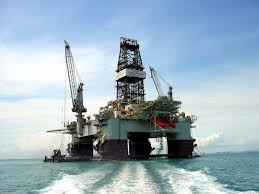Offshore Injury Update — 5.11.16
May 11, 2016
Maritime injury attorneys at Morrow & Sheppard discuss recent developments in the maritime and offshore drilling business. If you or a loved one has suffered a maritime injury, please call us now at 1-800-489-2216 or fill out our online consultation to learn more about your legal rights.
Transocean Offshore Worker Suffers Injury
An offshore worker on the deepwater drilling rig Henry Goodrich was injured the evening of May 5, 2016. The operator, Husky Energy, stated that the worker sustained a leg injury while working around moving equipment. The vessel was drilling in the White Rose Field, approximately 140 nautical miles off St. John’s, Newfoundland, Canada, at the time of the maritime injury.
The Transocean Henry Goodrich is an offshore semisubmersible drilling rig capable of drilling in 5,000 feet of water, to a total drilling depth of 30,000 feet. It entered service in 1985.
Based in Houston, Texas, Transocean is a “leading international provider of offshore contract drilling services for energy companies, owning and operating among the world’s most versatile fleets with a particular focus on deepwater and harsh-environment drilling. Our fleet of 60 mobile offshore drilling units includes the world’s largest fleet of high-specification rigs consisting of ultra-deepwater, deepwater and premium jackup rigs. In addition, we have six ultra-deepwater drillships and five high-specification jackups under construction.”
Defective Bolts Causing Issues On Offshore Rigs
In 2016, Brian Salerno of the Bureau of Safety and Environmental Enforcement (BSEE) issued a formal warning that the bolts used to hold subsea drilling equipment together are failing faster than manufacturers intended. The blots are used in riser pipe and blowout preventers (BOPs), critical safety equipment that could prevent another Deepwater Horizon rig explosion–if it functions properly.
In May 2016, Mr. Salerno told the Offshore Technology Conference in Houston, Texas that “they’re very simple and design and concept but they’re critical. If a vital connection point fails, the entire system is compromised.”
The problem is not isolated to one manufacturer, but rather is an issue plaguing offshore bolts made by all three major equipment manufacturers, including GE Oil and Gas. BSEE believes the problem is systemic.
BSEE sent a letter to Jack Gerard, Executive Director of the American Petroleum Institute (API), asking API members to “ensure that connectors and bolts deployed on the Outer Continental Shelf (OCS) are not faulty.”
Chevron Sells Gulf of Mexico Assets To Cox Oil Offshore
In April 2016, Chevron Corp. sold the bulk of its Gulf of Mexico offshore drilling assets to Cox Oil Offshore LLC. The assets are shallow-water oilfields in the Gulf of Mexico Outer Shelf and in Louisiana state waters. The sale involves 170 active wells, 70 platforms, 70 caissons, and several other offshore structures.
More than 100 Chevron offshore workers will join Cox as part of the sale. Cox is a Dallas, Texas-based independent offshore oil and gas company.
Texas Maritime Injury Lawyers Are Ready to Assist
Maritime injury attorneys at Morrow & Sheppard help injured seamen, crewmembers, passengers, and offshore workers nationwide in a variety of maritime injury and wrongful death cases. We have membership in the prestigious Maritime Law Association.
If you or a loved one has suffered a serious maritime injury, please contact us immediately at 1-800-489-2216 for a free and confidential consultation.
It would be our privilege to discuss the merits of your case, including whether the Jones Act or General Maritime Law might apply, and what kinds of legal deadlines might govern your case.
If you do hire us, we only get paid if you win.
- Home
- |
- Maritime Injuries
- |
- Offshore Injury Update — 5.11.16
















































